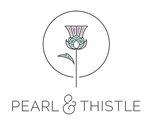
Light Menstrual Bleeding
November 20, 2024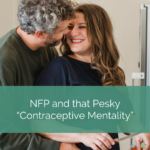
NFP and that Pesky “Contraceptive Mentality”
February 27, 2025How do couples regain trust with NFP?
This is something that I see a LOT of questions about in Facebook groups, because that's where a lot of people go to process and sort out their experiences if they feel that NFP has "failed" them in some way.
Lots of people will chime in and offer advice like:
- Try a different instructor
- Try a different method
- Pray harder about your family planning intentions (maybe God doesn't want you to abstain!)
- Pray harder about your family planning intentions (maybe God wants you to abstain indefinitely!)
- Stop making it harder on yourself by watching porn (whoa.... jumping to conclusions, much?????)
I'll stop the list there because some things I've seen just veer into craziness. And that's just the Catholic groups, where the options aren't likely going to say "just give up on NFP entirely and switch to birth control."
Some of the advice is sound, and I like to assume the best intentions on every commenter's part. Occasionally there are really beautiful, encouraging responses.
However, in an attempt to encourage someone, Catholic groups sometimes end up sounding like a massive "defense of my NFP method club" where people end up arguing about research (or lack thereof) surrounding the efficacy of certain approaches.
And "trust" gets boiled down to a numbers game.... which method has the best stats? What approach gives you the most usable days? Whose method costs the least? How much does it cost to raise another baby? (okay, that's in jest. But it's there!)
BUT, when I am coaching couples who are worried about whether they can "trust" NFP, I invite them to really sit and think about what it means to "trust" something.
In today's modern world where information (of all kinds!) is at our fingertips, it can be very easy to feel like we need to research everything for ourselves and basically come to 100% total confidence in something before we "trust" it.
And I don't disagree that blindly "trusting the experts" on every single issue is not a great way to go.
But there's a big, meaningful gap between "blindly trusting" something and anxiously chasing 100% confidence levels as a prerequisite to action.
That gap is inhabited by a nuanced gradation of informed decision-making-- one that honors the needs and natural curiosity of the individual person, while at the same time holding tension and space for the fact that humility is always required.
God did not design any single person such that our holiness, or our happiness, depends on shouldering the burden of proof for every action we take in life.
I say this with great confidence. Because our Faith requires that commitment to not only trusting the ultimate authority (who is God.... and we are not) but also trusting the authorities which God has inspired to lead and guide us. Trusting the people who have come before.
In fact, the words "Faith" and "Trust" are identical.
The Greek work πίστις (translated usually either as faith or hope) isn't really captured by a single English word.
πίστις can be used to mean:
- I place my faith/trust in you.
- I choose to rely on you.
- I am persuaded by you.
- I have confidence in you.
So, how does this relate to NFP?
I think it's really hard when couples have "lost" a sense trust in NFP because (as we saw in some of the sample advice given above!) it's not just about trusting a family planning method. It's also (rightly) wrapped up in our sense of who God is, and our own ability to discern and act upon His will in our lives.
So when Catholic couples say, "I don't trust NFP anymore" there absolutely needs to be a response to both the practical aspects of NFP use but ALSO there needs to be healing in their relationship with God, the Church, and sometimes with each other.
Aaaaaaaaaand your everyday NFP instructor sometimes gets wrapped up in that tension between practical support and ministerial need. ![]()
![]()
![]()
In other words, from the English perspective, πίστις needs to be restored on two fronts: building trust in the process/research/application of NFP AND strengthening faith in all the relationships that have been impacted.
What each person needs and the decisions they make are going to be part of their call to holiness. Because guess what? Ultimately, FAITH is a gift that is given by God.
Faith (πίστις) is something we must CHOOSE to accept.
But the source of faith is not from any human authority.
So we can try to provide stats and reassuring figures and "proof" that NFP actually works...I do think that's important!
But it's not going to go well unless that relationship with God is addressed FIRST-- or at least simultaneously.
As an NFP instructor, I'm super limited on that front.
But my go-to phrase is that trust is something which, when it comes to earthly things, does need in some ways to be "earned."
But it also has to be "chosen."
Paradoxically, trust can't be earned until it is first chosen.
This means that each couple's pathway to receiving the strength to make that choice needs to be respected-- not just by NFP instructors and well-intentioned people on the internet, but also by each other as a couple and as individuals.
Which is why RELATIONSHIP is so important here!
And why I believe so firmly that NFP support in a parish should not just be about getting people information on different methods!!!! The Church fails her mission if she only does initial evangelization but never chooses to walk with people as they integrate that into their lives.
This is the distinction we might make between "evangelization" and "discipleship" but I like to call it the difference between "fishing" and "feeding."
Both fishing and feeding are tasks given to Peter as head of the Church (see: Matthew 4:18-22 and John 21:15-19). It's the difference between reeling someone in, and establishing them in a safe pasture.
And those couples who have lost trust with NFP need to be fed, so they can regain their strength to accept God's providential care.
Okay, great, Christina. Well.... how do we feed them?
Well, that's the task of a lot of different people, I think.
- NFP instructors are needed to give skilled interpretation of charts, and gently offer guidance on modifications (either within the same method or with a new approach).
- Counselors may be needed to address postpartum depression, anxiety, trauma, or communication skills for the couple.
- Other couples are needed to let these families know they are not alone, and offer not just encouragement but potentially material support.
- Priests may need to be available for the edification of the couple, and the reassurance that feelings of anxiety or fear are not moral failings.
- The institution of the Church (parish or diocese) might be needed for educational but also financial resources to help the couple shoulder the burden of additional or more personalized NFP instruction.
- And the husband and wife also need to be dutiful in their commitment to prayer for and with one another, as ministers of grace to each other within the Sacrament of marriage.
Notice here that I have not said a single person should actively question the couple's family planning intentions, or suggest that their faith is not strong enough if they are struggling with the current situation.
There are times and places for fraternal correction (with OH so many stipulations about what that means and entails), but an immediate crisis is not one of them.
So...what's my takeaway, Christina?
Well, dear reader. I don't know. I think the answer is: do something.
But I couldn't even begin to tell you what God might be asking you to do!
You might:
- file this information away for the future
- be encouraged to start a personal NFP support apostolate
- reach out to your diocese to inquire about NFP education/materials scholarship programs (and maybe galvanize a base to donate!)
- feel a sort of personal conviction that healing is needed in your own life (in which case, please reply back and I will try my best as an NFP instructor to direct you towards resources I know of, or instructors I might recommend for your method!)
- start a conversation with your priest about the challenges couples can experience with NFP
- call a friend who is struggling with this (or a similar) issue
- become an NFP instructor to actively help couples navigate new charting situations!
- offer up prayers and spiritual sacrifices for couples who are struggling
- not do anything to directly support NFP at all... but find the fishing vs. feeding distinction helpful in your own ministry area
I'm going to drop a few of my own resources below, including a FREE NFP informational brochure you can download and print at home, in case you feel called to provide a little more info about options at your parish.
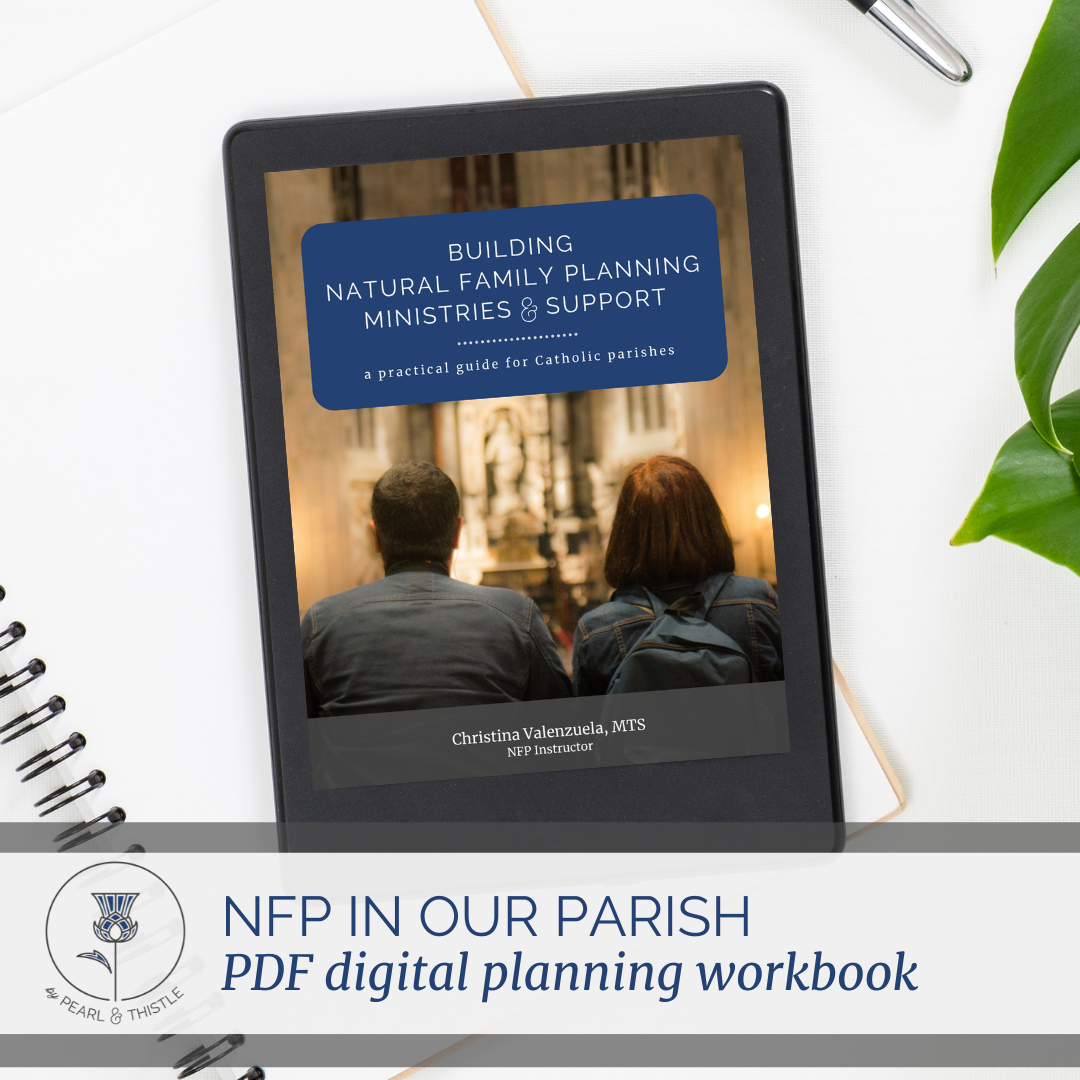
PDF Workbook- "Building NFP Ministries & Support: A Practical Guide for Catholic Parishes"
Over 30 pages of explanations, resources, helpful tips, and planning exercises to boost (or kickstart!) NFP support in your parish. It's great for parish staff, ministry teams, or individuals looking for basic ideas to propose to your parish. $17
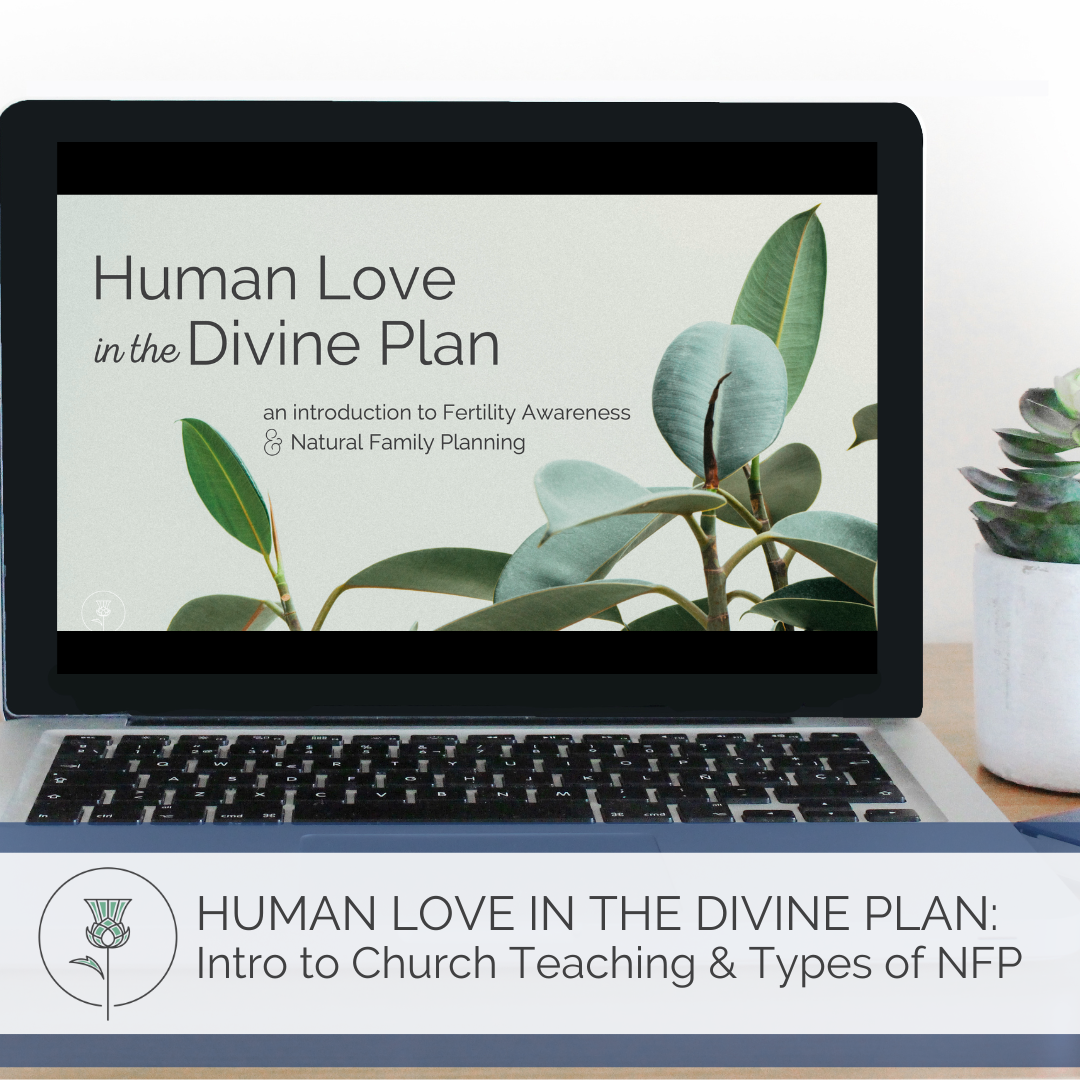
NFP Presentation Materials: "Human Love in the Divine Plan: An Intro to Fertility Awareness and NFP"
Everything you need to teach an intro to NFP session! Beautiful PDF slide deck & speaker notes have been prepared for you to deliver your own presentation, either using this script directly or using your own. Handouts for additional resources and learning are included, as well as the option to play pre-recorded videos in the English version.
English version
Spanish version
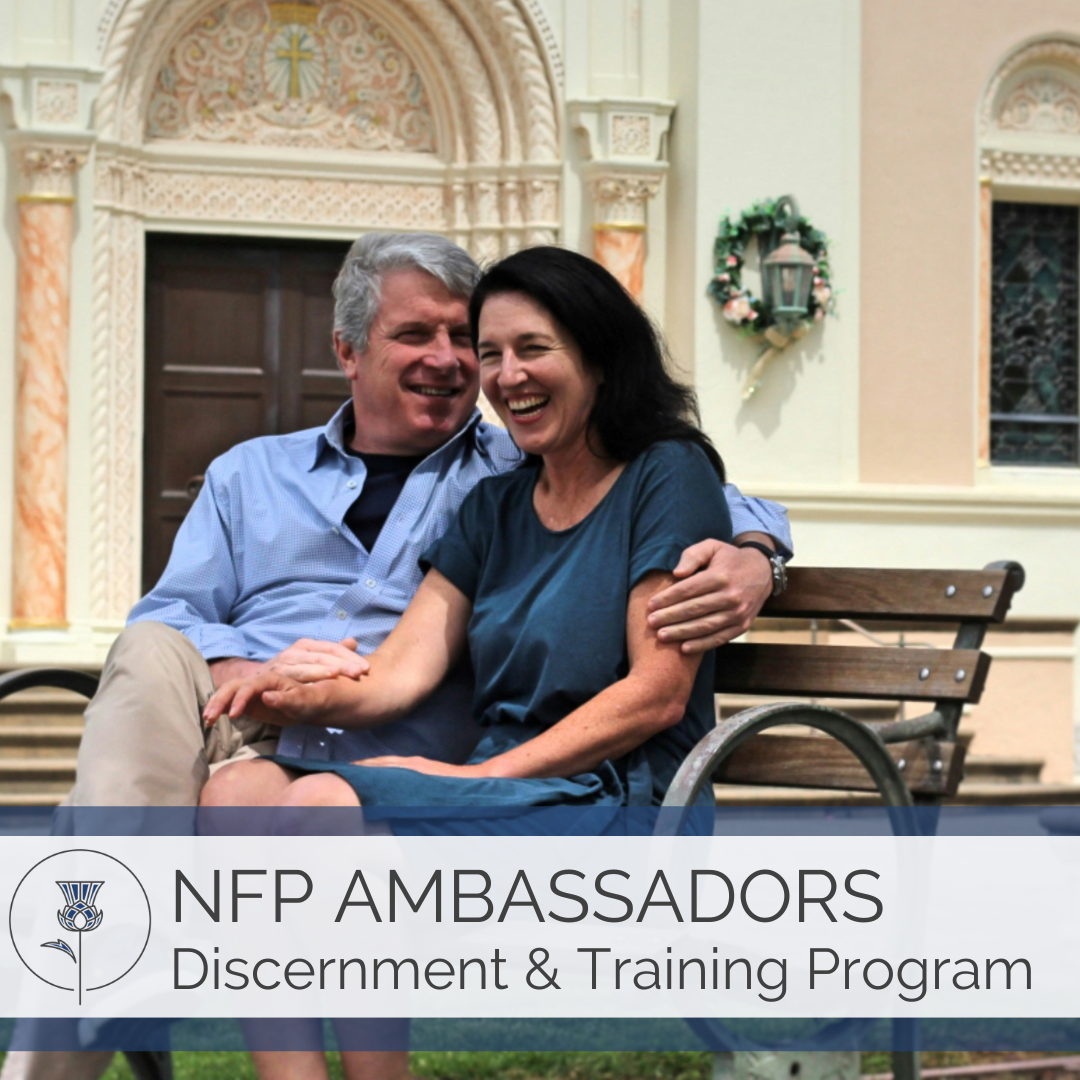
NFP Ambassador Training Course
A certification course to give you all the background information to serve as an NFP Ambassador in your parish, whether simply as a point of contact for resources or in active ministry. NFP Ambassadors are equipped to SHARE, SUPPORT, and SPREAD THE WORD about NFP in a way that authentically uses their own gifts to serve the unique needs of their community.



